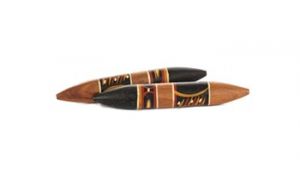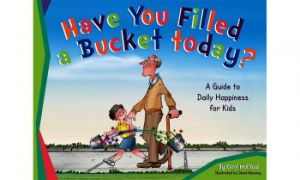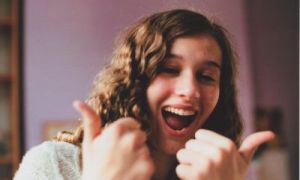The Developmental Milestones Checklist EYLF 2 to 3 Years enables Educators to link each of the milestones within the developmental domains to the EYLF Outcomes.


Experts on early childhood education have for some time believed that much more than the content of learning – like numeracy, literacy and science concepts – it is the acquiring of learning dispositions that ensure the best academic outcomes in the long run. The following article provides information on What Are Learning Dispositions, How Dispositions Change over Time and Context, Examples Of Learning Dispositions and more.
This template is to be used to detail the child's progress over the course of the year. It's great to share with families to let them know specifically how their child developed and the new skills they learnt. It can also be used as a Transition Statement for the child to be shared with the school teacher.
The EYLF explains assessment for children’s learning as the process of gathering and analysing information as evidence about what children know, can do and understand. It is a key part of an ongoing cycle that includes planning, documenting and evaluating children’s learning. And one of the most effective forms of such documentation is the learning story. The following article provides information on What Is A Learning Story, the Components Of A Learning Story, Writing A Learning Story, What To Include In A Learning Story and more.
The Developmental Milestones Checklist EYLF 4 to 8 Months enables Educators to link each of the milestones within the developmental domains to the EYLF Outcomes.
The Developmental Milestones Checklist EYLF 8 to 12 Months enables Educators to link each of the milestones within the developmental domains to the EYLF Outcomes.
The Developmental Milestones Checklist EYLF 3 to 5 Years enables Educators to link each of the milestones within the developmental domains to the EYLF Outcomes.
The Developmental Milestones Checklist EYLF 2 to 3 Years enables Educators to link each of the milestones within the developmental domains to the EYLF Outcomes.
The Developmental Milestones Checklist EYLF 1 to 2 Years enables Educators to link each of the milestones within the developmental domains to the EYLF Outcomes.
Critical reflection has been explained in the EYLF as reflective practices that focus on implications for equity and social justice. In the context of childcare, it involves examining and analysing events, experiences and practices from a range of perspectives to inform future planning and decision-making. The following article provides information on Engaging In Critical Reflections, Questions For Critical Reflections, Practicing Critical Reflections and more.
Experiences in early childhood settings build on the range of experiences with language, literacy and numeracy that children have within their families and communities. The following article provides activities to promote each of the sub-outcomes of EYLF Outcome 5 - Children Are Effective Communicators.
 As an Educator in Australia, your pay rate falls under the Children’s Services Award 2010. This award states the minimum amount that an employer can… Read More
As an Educator in Australia, your pay rate falls under the Children’s Services Award 2010. This award states the minimum amount that an employer can… Read More
 When working as a qualified Early Childhood Teacher (with a university degree) within a service, your rate of pay will come from the Educational Services… Read More
When working as a qualified Early Childhood Teacher (with a university degree) within a service, your rate of pay will come from the Educational Services… Read More
 When working as a Diploma Qualified Educator your pay rate is from the Children's Services Award 2010. This Award states your minimum rate of pay… Read More
When working as a Diploma Qualified Educator your pay rate is from the Children's Services Award 2010. This Award states your minimum rate of pay… Read More
 When working as a Cert 3 Qualified Educator, your pay rate is from the Children's Services Award 2010. This Award states your minimum rate of… Read More
When working as a Cert 3 Qualified Educator, your pay rate is from the Children's Services Award 2010. This Award states your minimum rate of… Read More
 Educational Leaders play a crucial role in their early childhood service by ensuring that the educational program aligns with best practices and supports the holistic… Read More
Educational Leaders play a crucial role in their early childhood service by ensuring that the educational program aligns with best practices and supports the holistic… Read More
 In early childhood education and care, ratios are more than a technicality—they are a frontline safeguard. Every child deserves responsive supervision, emotional connection, and developmental… Read More
In early childhood education and care, ratios are more than a technicality—they are a frontline safeguard. Every child deserves responsive supervision, emotional connection, and developmental… Read More
 With the new national child safety reforms kicking in on 1 September 2025, early childhood services like yours have a real opportunity to lead the… Read More
With the new national child safety reforms kicking in on 1 September 2025, early childhood services like yours have a real opportunity to lead the… Read More
 Here’s a comprehensive Mobile Phone and Smart Watch Policy tailored for early childhood education and care (ECEC) services in Australia, aligned with the latest 2025… Read More
Here’s a comprehensive Mobile Phone and Smart Watch Policy tailored for early childhood education and care (ECEC) services in Australia, aligned with the latest 2025… Read More
 The Sea of Fish Challenge is a national initiative that invites children, educators, families, and communities to create and display fish artworks as a symbol… Read More
The Sea of Fish Challenge is a national initiative that invites children, educators, families, and communities to create and display fish artworks as a symbol… Read More
 Across the early childhood education and care sector, educators are sounding the alarm: current staffing ratios are insufficient to deliver safe, meaningful, and developmentally appropriate… Read More
Across the early childhood education and care sector, educators are sounding the alarm: current staffing ratios are insufficient to deliver safe, meaningful, and developmentally appropriate… Read More

Music is a universal language—and in Aboriginal and Torres Strait Islander cultures, it’s also a...
See more...
Have You Filled A Bucket Today is a free story that children can download and...
See more...
Encouragement is a self-esteem enhancing tool that we as childcare professionals should utilize more often...
See more...© 2009-2025 Aussie Childcare Network Pty Ltd. All Rights Reserved.
